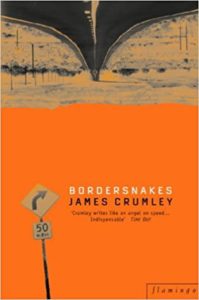

Lost worlds and ports of call

Everybody compiles lists. These usually are of the “top 10” kind. I started compiling a personal list of individualist titles in the early 1990s. When author China Miéville published one entitled “Fifty Fantasy & Science Fiction Works That Socialists Should Read” in 2001, I started the following list along the same lines, but a different focus. Miéville and I have in common some titles and authors, but our reasons for picking these books probably differ greatly.
Some rules guiding me while compiling this list included: 1) no multiple books by the same writer; 2) the winners of the Prometheus Award do not automatically qualify; and, 3) there is no limit in terms of publication date. Not all of the listed works are true sf. The first qualification was the hardest, and I worked around this by mentioning other notable books in the brief notes. I mostly excluded shorts stories but included two plays, one of which appeared several thousand years ago. This is a personal list. As with any list there may be debate and questions of the compiler’s taste and sanity, etc. We read and enjoy fiction for a variety of reasons, but these books I believe are compelling for the spirit of liberty, which burns brightly within their pages.
Some of these books I last read decades ago, others very recently. They are ordered alphabetically by author, and mostly ignore the political beliefs of the author: the idea of liberty is one shared across the political spectrum. While some political philosophies clearly are at odds with individual liberty, names and labels change over time, and thus someone who considers themselves a socialist may end up writing a book that seems to counter certain views of socialism. Liberalism in the 19th and early 20th centuries is far closer to modern ideas of individualism than the idea of capitalism at that time.
Also, books have a life and soul of their own, often at odds with those of the author. Authors’ life experiences amidst certain world events also influence their fiction. As they fictionalize their experiences, thoughts and emotions bubble up into their fiction in ways they must see through to the end. Thus, you have the socialist writer George Orwell penning perhaps the greatest critique ever of socialism:Animal Farm. Once released into the wild, a book no longer belongs to the author, and must be judged on its own. Continue reading
The Libertarian Futurist Society announced this year’s finslists for the Prometheus Best Novel Award, for fiction published in 2009.
I have not yet read a single one of the nominees, though I admit to some surprise that Harry Turtledove has two books in the running. I have read only a handful of his books, and (my opinion only) I find them far from gripping and engaging in the manner I expect from an award winning novel. As for the other nominees, I read Card’s earlier novel, or rather, skipped huge chunks to get through it out of sheer sense of obligation. I enjoyed Doctorow’s Little Brother, but have read nothing else by him, and the Kollin brothers debut with their novel. Am I just losing touch with modern SF? I found the recent list of Hugo finalists also distressingly banal and uninteresting. It has been a long while since I truly enjoyed most of the new books I read, and I seem to read fewer each year. There is no sense of wonder in today’s SF, or maybe that’s just me. In movies, everything is a reboot. I expect more from books, but maybe the magic has faded. I get more out re-reading Jack Vance these days.
Regarding the post below about the interview with Boston, it is apropos to mention his latest collection – Masque of Dreams. More information over at http://www.bruceboston.com/MasqueofDreams.html and this time the url is the link. Contains novelettes, short stories, and poems. Since I printed two of Boston’s poems in the Summer 2009 issue of Prometheus, I believe I must acquire this book.
© 2025 Anders Monsen
Theme by Anders Noren — Up ↑